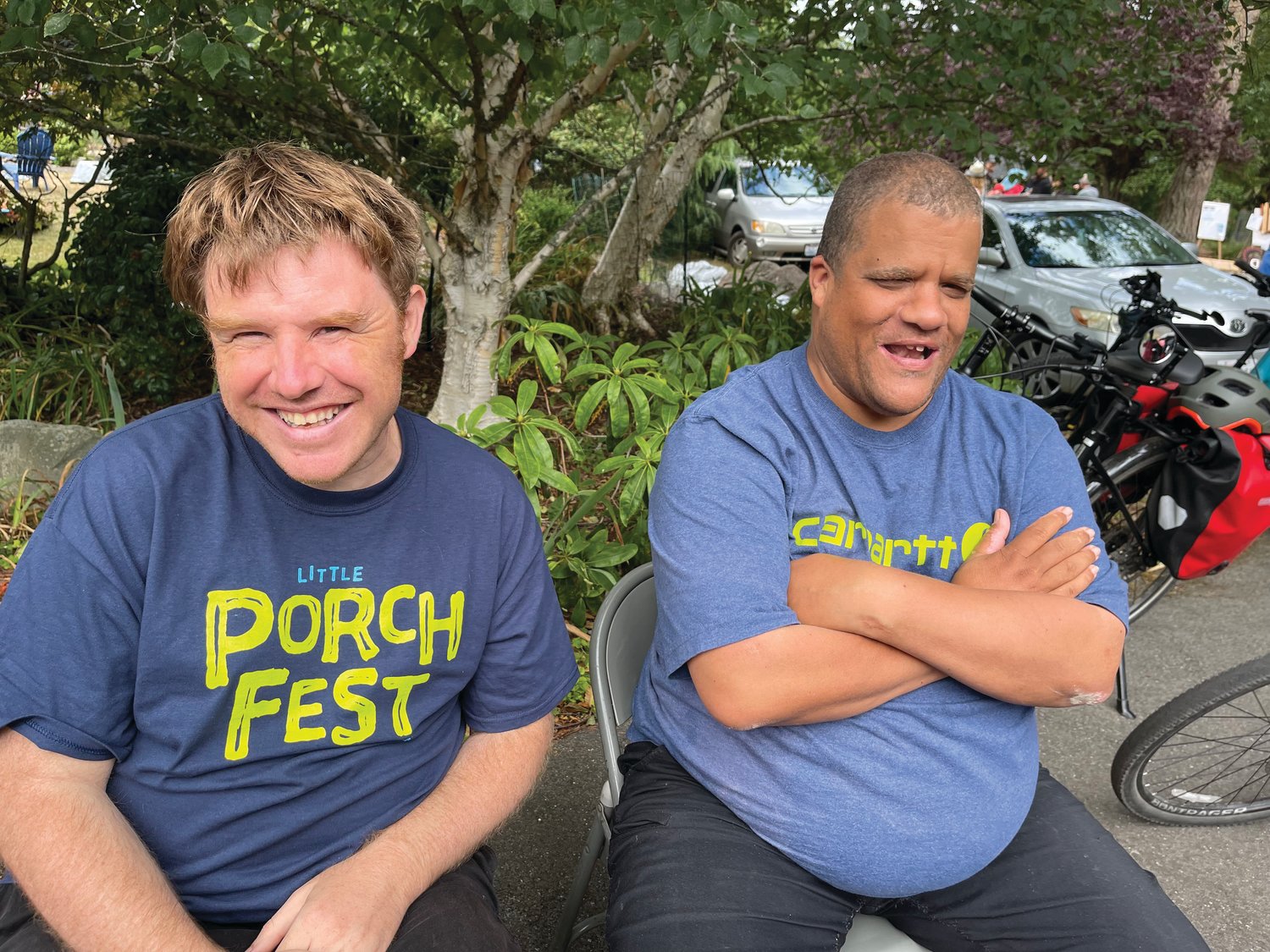The housing crisis may be more relevant now than ever, but Jefferson County nonprofits have been working hard to help for many years.
Even with the new focus …
This item is available in full to subscribers.
We have recently launched a new and improved website. To continue reading, you will need to either log into your subscriber account, or purchase a new subscription.
If you had an active account on our previous website, then you have an account here. Simply reset your password to regain access to your account.
If you did not have an account on our previous website, but are a current print subscriber, click here to set up your website account.
Otherwise, click here to view your options for subscribing.
* Having trouble? Call our circulation department at 360-385-2900, or email our support.
Please log in to continue |
|

The housing crisis may be more relevant now than ever, but Jefferson County nonprofits have been working hard to help for many years.
Even with the new focus on this growing issue, these housing advocates still struggle to get the attention and funding they need, especially coming out of the pandemic years with a faltering economy. Yet they have turned to face the difficulties with open hearts and minds, looking for solutions on the horizon.
Jefferson County Community Outreach Association Shelter Team
Karen Riel has been helping fund and feed those in need for 18 years and is the last remaining founding member of the Jefferson County Community Outreach Association Shelter Team (COAST) still active in the program.
The group focuses their efforts on assisting the Olympic Community Action Program (OlyCAP) with the emergency shelter run out of the American Legion Hall in Port Townsend.
“We help OlyCAP be able to do their job, be able to do it without having to worry about something falling apart and not getting fixed,” Riel said.
“We’re in a building that’s very old,” she added. “Things are falling apart. Toilets fall apart. It’s kind of one thing after another and we help out with that.”
In addition to building repairs, the group also collects and provides things like personal hygiene items, paper products, and cleaning products for the shelter.
“All the things that go into providing what they need when they’re there,” Riel added.
Most important of all, the group ensures that when people come in out of the cold, a hot meal is ready for them.
“We provide meals during what we call the winter season from Oct. 15 through April 15, approximately,” Riel said.
During those six months, they help coordinate with local churches who either bring hot meals in or can cook on-site.
In addition to that warm dinner, they also pack a sack lunch and offer a continental breakfast for those staying at the shelter.
Of course, when the weather warms that doesn’t necessarily mean all is well for the people who rely on their services, so COAST continues to provide essentials year-round.
“We provide a lot of the food for the summer,” Riel said. “Summer is a whole different thing because they come in later in the evening after they’ve probably already had dinner and so we provide snacks for them or something that the monitors can heat up. And then we provide a breakfast and sack lunch if they need it.”
And it doesn’t stop at food.
“For years and years we have provided sleeping bags in April so that they can find a place to camp out for the summer,” Riel said. “Now we’re putting our money into tiny homes and along with OlyCAP we’re having built 10 tiny homes that will get people out of tents.”
Olympic Neighbors
Beyond the mental health issues, many associate with the homeless, another underserved and too often unseen population are those with developmental disabilities.
For five years, Olympic Neighbors has been providing services for adults with developmental disabilities and their families by providing safe, affordable housing and staff support so their residents can thrive in the local community. Not including the year and a half spent renovating a house for their residents to live.
“Right now we have one adult family home and it’s in Port Townsend,” said Claudia Coppola, executive director for Olympic Neighbors.
“It’s a regular house in a regular neighborhood.”
They make sure that resource is fully utilized.
“We have six individuals that live in the home which is the most you can have in an adult family home,” Coppola said.
In the past, they’ve had both men and women reside there, but currently six men share the space amongst a mixture of generations.
“We’re serving a whole age range,” Coppola said. “Our oldest individual is almost 60 and then we’ve got some guys in their early 30s.”
Despite the differences, the home offers them a community that provides as much support as the foundation of the building itself.
“The people that are currently living in this house are like a family,” Coppola said.
To help achieve that harmony, there is always at least one staff member on-site.
“The staff are here to help them learn to live cooperatively with their peers, make sure they’re prepared for work, take meds, cook meals,” Coppola said. “But also we’re here to help them figure out what living a good life means to each of them and then setting goals to accomplish and achieve that life that they want for themselves.”